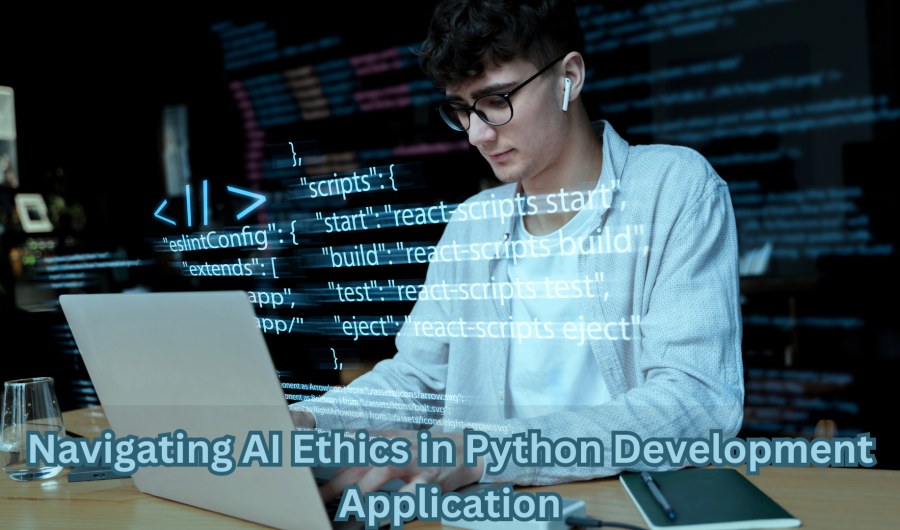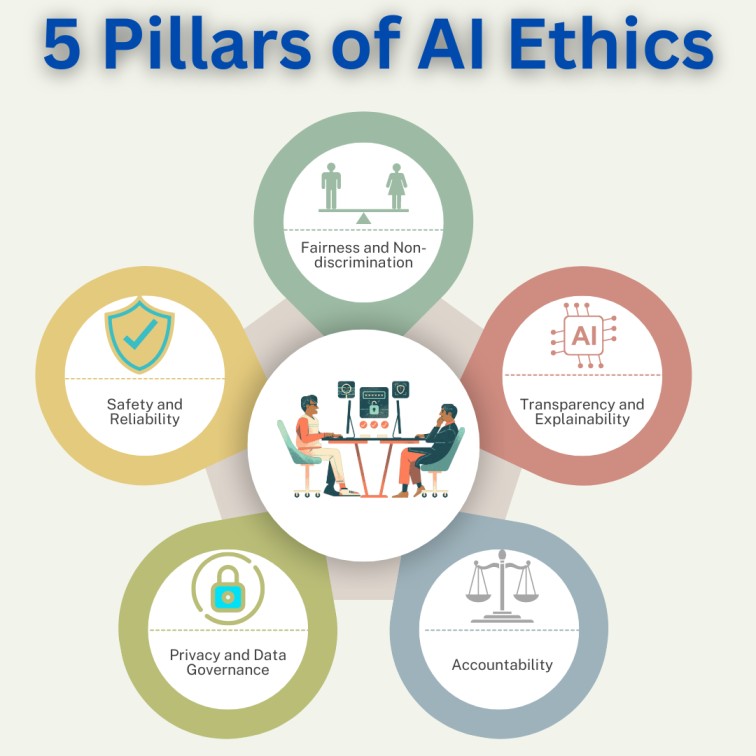
Navigating AI Ethics in Python Development Application
The field of artificial intelligence is growing at a never-before-seen pace, and Python is the language of choice for creating AI applications. Along with advances in science, this rapid expansion creates an urgent need to address the ethical implications of AI applications. Developers must recognize their significant influence and uphold responsible practices. Given this rapid growth, how can we maintain ethical integrity in Python AI development? This introduction explains the importance and quick rise of AI in Python development and asks a daring question to draw the reader in from the outset.
The Ethical Minefield of AI Development
The 2018 Amazon AI recruiting tool incident, which devalued resumes having “women’s” or all-women’s college references, serves as an example of the widespread problem of bias in AI development and shows how prejudices can permeate AI models and worsen societal prejudices. Advancements in technology highlight this problem, showing increased error rates for women and racial minorities.
Navigating AI ethics in Python development applications involves grappling with critical ethical considerations throughout the software tools development lifecycle. As Python emerges as a leading language for AI, programmers entering the field must integrate ethical principles into every stage of their projects. These principles not only enhance the reliability and trustworthiness of AI systems but also uphold societal values and legal standards. Embracing ethical guidelines is crucial for aspiring developers aiming to secure programming jobs that will train to build responsible and impactful AI solutions for the future.
The Legal and Regulatory Landscape
Legislators and regulatory organizations all over the world are striving to create frameworks that address the ethical and practical problems related to AI technology as it continues to progress quickly. The Department of Defense established ethical standards for the application of AI, placing a premium on responsibility and openness.
In addition, the European General Data Protection Regulation (GDPR) is a rigorous law that sets rules for the handling of personal data in AI systems. These laws are part of a global movement to guarantee that the development of AI complies with moral principles and protects individual rights.
Best Practices for Ethical AI Development in Python
Creating ethical AI systems hinges on robust practices for collecting and utilizing data that prioritize moral principles. To reduce biases in AI models, broadened datasets covering a range of scenarios and demographics are essential. To identify and resolve any potential biases or privacy issues that may surface during the development process, regular data audits are crucial.
Enhancing accountability and building trustworthiness in AI systems is possible through transparent data sources, which include clear disclosures about the data’s origins and utilization. Adopting procedures for ethical evaluation is equally essential, but as of right now, very few AI businesses operate with dedicated ethics boards. Software development methods can effectively incorporate ethical issues when they follow the rules provided by the ACM Code of Ethics and Professional Conduct.

Source: Canva
Comparison: Traditional vs. Ethical AI Development in Python
| Aspect | Traditional AI Development | Ethical AI Development |
| Data Collection | Focus on quantity | Emphasis on diversity and quality |
| Algorithm Design | Prioritize performance | Balance performance with fairness |
| Testing | Functional testing | Includes bias and fairness testing |
| Transparency | Limited explanation of decisions | Explainable AI techniques |
| Privacy | Data used as needed | Strict data protection measures |
| Review Process | Technical review only | Includes ethical review |
| Regulatory Compliance | Minimal consideration | Proactive compliance efforts |
FAQs
What is the application of AI ethics?
Applying ethical guidelines to the development and utilization of AI is known as AI ethics. It covers topics such as reducing prejudice, preserving privacy, ensuring decision-making is transparent, and making sure AI systems ethically serve society.
What are the ethical issues with using AI in navigation?
The security and reliability of autonomous vehicles, making decisions in a crisis, taking responsibility for accidents, equally important location tracking, and data collection from navigation systems are some of the ethical issues surrounding AI navigation.
What are the ethical considerations in AI development?
Ethical considerations in AI development encompass several critical areas. These include reducing bias and ensuring fairness, protecting user privacy, promoting transparency and explain ability of AI systems, establishing clear accountability, ensuring safety and reliability, considering potential job displacement, addressing concerns about autonomous systems, minimizing environmental impact, and fostering inclusivity. Developers must carefully navigate these issues to create responsible AI that benefits society while mitigating potential negative consequences.
Conclusion
Creating just AI systems needs sound data collection and use, where moral behavior is essential. To reduce biases in AI models, diversified datasets covering a range of scenarios and demographics are important. Regular data audits are essential for uncovering and addressing any biases or privacy concerns that may emerge during development.
Improving accountability and trustworthiness in AI systems is possible through transparent data sources, which include clear disclosures about the data’s origins and utilization. Adopting processes for ethical evaluation is equally essential, but as of right now, very few AI companies operate with dedicated ethics boards. Software development methods can effectively incorporate ethical issues when they follow the rules provided by the ACM Code of Ethics and Professional Conduct.






